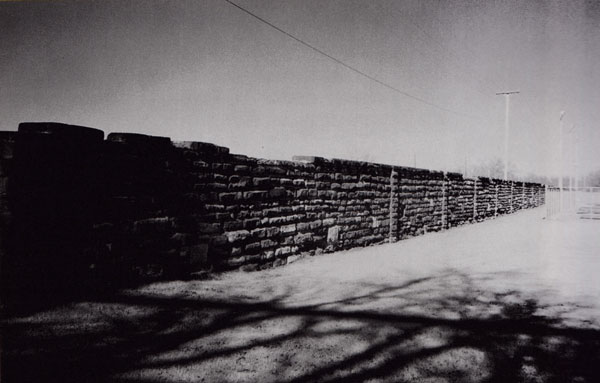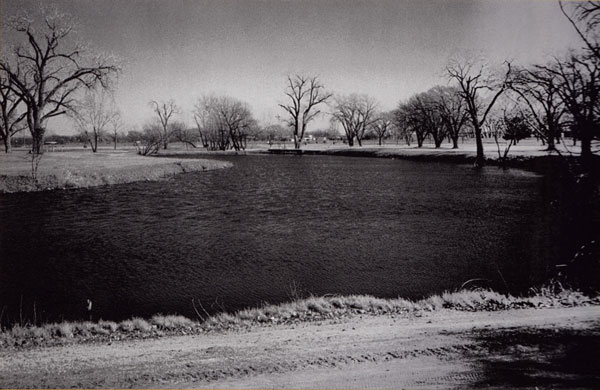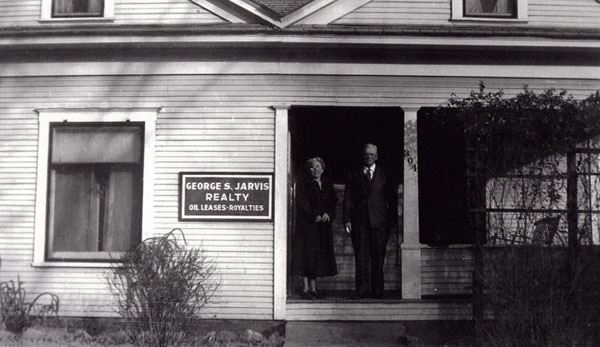To enlarge, click
on below image

Great
stone wall in the city park, Sayre, Oklahoma. Built in order to use
available labor. Sponsored under WPA (Works Progress Administration)
in Roosevelt's New Deal Days.
![]()
To enlarge, click
on below image

Sayre
City Park Lake where I learned to swim. My big moment, at the age of
six, was swimming across 30 feet deep water. After 15 feet there was
no turning back. The lake was created by dynamite charges which blew
up large sand hills on one side of the lake. To provide work, the WPA
removed all these hills, one wheelbarrow at a time.
![]()
To enlarge, click
on below image

Virgina
and George Jarvis at their home and office, 304 North fourth Stret,
Sayre, Oklahoma. Route 66 ran by their front door until it was replaced
in the 1950s by National Highway 40.
![]()
THE
NEW DEAL
Another unsettling factor which was certainly not needed at the time was President Franklin Roosevelt. Roosevelt, in 1931, was elected on the promise to guarantee full employment in peace time but he didn’t come close to delivering. The sheer number of his social reforms hurt the economy far more than helping it at the time. Some of his reforms were thrown out by the Supreme Court. Some are treasured today as bulwarks of our social system. Many people decry his reforms as the beginning of the end of political freedom in the country. My father was in this category. In 1938, a record number of 10 million people were still unemployed. In the next four years, the number plummeted, but it was a war time economy that did it. Vivid in my memory, but seldom mentioned in history, is how Roosevelt had precipitated the United States’ involvement in World War II by his historic ultimatum to Japan. Joining with Holland and England—countries that controlled the strategic raw materials of Indonesia, Sumatra, Malaysia and Singapore—he demanded that Japan quit China and threatened a blockade of oil, tin and rubber. This struck at the lifeline of the Japanese economy. Japan struck back at Pearl Harbor. Roosevelt chose that moment to also declare war against Japan’s allies, Germany and Italy, and thus ensured the U.S. total involvement in World War II. That ended Roosevelt’s unemployment problem.
Ironically, Roosevelt had been re-elected to a third term in 1940 with the promise to keep the United States out of war. His famous statement was “I hate war; my wife Eleanor hates war.” I don’t think he ever intended to keep out of the war at all. He was motivated by historic ties to the United Kingdom, which felt threatened by the war on the mainland. A number of Roosevelt key advisers were Jewish and felt equally threatened by Hitler. Of course, at that time the enormity of the Holocaust to follow wasn’t known at all.

